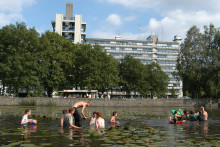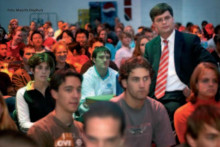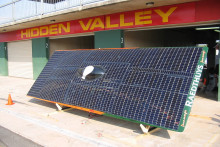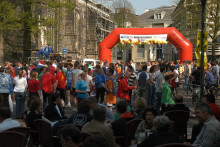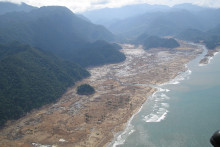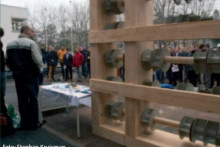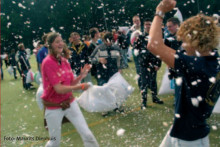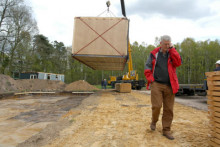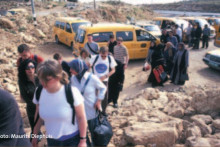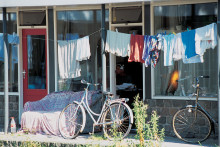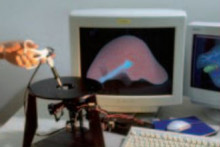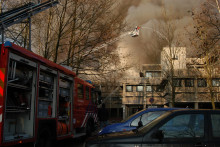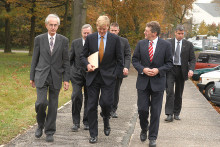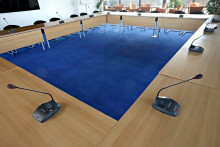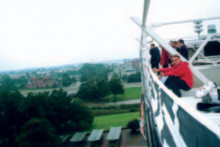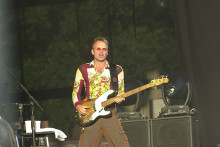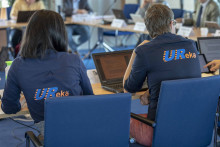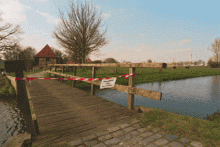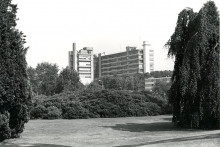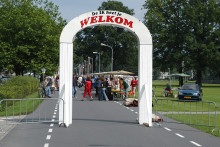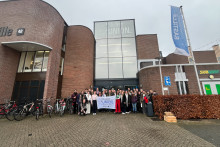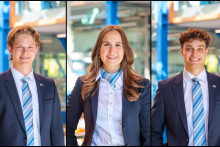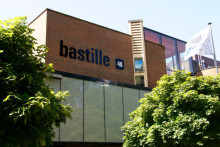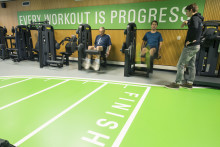In the year 2021, internationalisation is evident at the UT. It is firmly anchored in policy documents, the main language has been English for years now and the number of international students continues to grow steadily. Twenty years ago, at the start of the new millennium, things were very different: the vast majority of students were from the Netherlands and if there were any foreign students at all at the UT, they were mostly from Germany. But that has changed rapidly.
According to Stephan Maathuis, Managing Director at the EWI faculty, internationalisation really took off around the turn of the millennium. As a former lecturer in International Business Management, he had front-row seats. 'I would describe the 1990s as pioneering years. The real turning point was around 2000. That is when the Bologna Declaration for higher education in Europe was signed and the bachelor-master model was introduced. Subsequently, the UT expressed its ambitions to become an international university. You could see it, for example, in the Executive Board, which started to visit international partners much more often.' Maathuis immediately shares an important disclaimer with his story. ‘Naturally, researchers have always had an international network. For them, it was nothing new.’

(Photo: the opening of the academic year in 2005, the 'cortège' in the centre of Enschede)
Ambitions
From the 1990s onwards, the world opened up. ICT developments caused globalisation. With the rise of the Internet, everybody could immediately be in contact with everybody. Boundaries blurred. This did not go unnoticed by Dutch students either. ‘They wanted to experience it,' Maathuis says. ‘For example, students increasingly went on exchange abroad. And the university itself also joined in this development. From 2000 onwards, this international ambition was actually written into the policies.’
The new policy had major implications for the UT, says Maathuis. ‘If you want to internationalise, you have to be attractive to both international students and members of staff. From that moment onwards, there was talk of new language standards, facilities such as prayer rooms, codes of conduct and other things that would create an international environment.’ Soon, the first discussions on this subject arose. Maathuis remembers a meeting about the bachelor-master model in the BB-building (now the Spiegel). ‘We wanted to offer some of the master's programmes in English. I remember very well that one of the teachers asked if he could still use his Dutch slides. Such a comment is now quite unthinkable. It shows the change that had to take place at the university. Internationalisation is a tough but valuable learning process.’
According to Maathuis, internationalisation was initially aimed at growth. Only much later did questions arise about the limits of this growth. ‘It is a pendulum. Now you often hear: we are also a Dutch university. We have to be there for the Dutch economy and the Twente region.’ Maathuis also noticed another development. ‘Around the year 2000, foreign partners were there for the taking, so to speak. Now, partners are more critical. They simply ask how high the UT ranks. On the international playing field, we have become one of many players. We don’t have the luxury to choose anymore.’

(Photo: a performance by Sting on campus during the lustrum festival in 2001)
Stanford at the Dinkel
Leonie van der Steen, who studied Civil Engineering at the UT from 1999 to 2005, also remembers the first developments towards an international university. ‘It was certainly alive. I was on the board of the Student Union and we sometimes jokingly called the campus ‘Stanford on the Dinkel’, after the famous university on the American west coast. That term came from the founding father of the Student Union, Frans van Vught. Even though internationalisation began to come alive at the UT, it was very different from what we see today. Students mainly saw it as an opportunity to go abroad. There was no structural internationalisation yet. My Civil Engineering studies, for example, were still taught entirely in Dutch, and the content of the course was also geared towards Dutch building culture.’
Disasters
The beginning of the new millennium was also marked by two catastrophes for the UT: the fireworks disaster in 2000 and the fire in the TW/RC building (now Cubicus) in 2002. Almost half of the TW/RC went up in flames. Hundreds of employees, especially those in the Applied Mathematics Department, saw their workplaces get distroyed. The fireworks disaster has also left deep scars on the UT. Over fifty students and nearly twenty staff members lost their homes and possessions. In recent years, we have written several stories about the fire and the fireworks disaster. We have selected two of them (in Dutch).
Stag party
Van der Steen believes that the new, broader profile that the UT tried to adopt around the turn of the millennium is more characteristic of those years. It had to be less technical in Twente. That is why studies such as Technical Medicine, Communication Sciences and Educational Sciences were added to the university’s palette. For the Enschede student culture, this was no unnecessary luxury, Van der Steen says. ‘There was a reason why the term 'stag party’ ('hengstenbal', ed.) became a phrase in Enschede. There was a surplus of men.’
She illustrates the ‘shortage of women’ with an anecdote from that time. ‘I was in the Pimpelle club at Audentis and we used to make jokes about being as seductive and unapproachable as possible to our male fellow students. You also had to be pretty tough to keep the men off you. At times, I felt quite sorry for the male freshmen, who were constantly told no. The more experienced second- and third-year students ran off with the female first-year students.’ According to Van der Steen, the new studies eventually caused a ‘sigh of relief’. ‘But even before that it never really bothered me. As I said before, we made jokes about it.'

(Photo: students at the outdoor pool, on a hot summer day in 2002)
Drinks
Van der Steen's student life took place within the world of student associations. In 2001, she joined the board of the Student Union as the Internal Commissioner. ‘The Union, back then, had only existed for two years. It was a great challenge to get all the associations - more than a hundred - under the umbrella of the Union. It caused resentment in the beginning. That's why, as the Internal Commissioner, I went to all the get-togethers throughout the year, just to talk and listen to their concerns.’
In addition, the Student Union also had to deal with major budget cuts and a large-scale renovation of the Bastille. ‘There was so much that had to be done. I was hardly ever home in the evenings and was sometimes reproached by my housemates for this. Also, sometimes it felt like I was doing my studies on the side. But my time as a student was incredibly varied because so much was happening on the campus. When I think back on it now, it feels like a very colourful time.’


